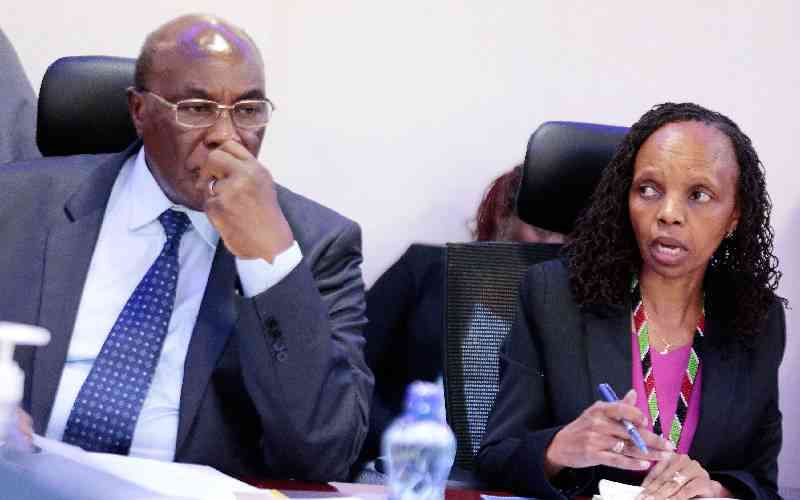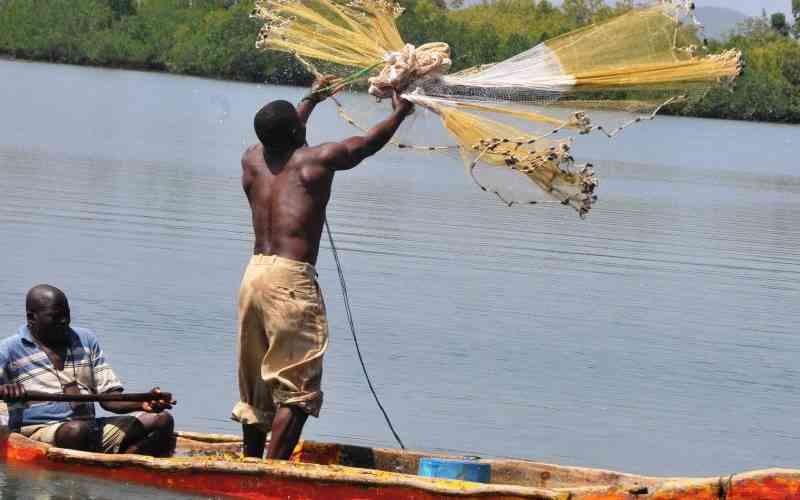
Students joining public universities under government sponsorship could soon be required to “pay back” their education by serving the country before seeking other employment.
The Kenya Universities and Colleges Central Placement Service (KUCCPS) on Tuesday proposed to Parliament that all students who benefit from government scholarships be bonded to work for the state for a specified period.
Appearing before the National Assembly Education Committee, KUCCPS argued that taxpayers should get a return on their investment in higher education.
Mercy Wahome, the KUCCPS Chief Executive Officer, said the current system allows graduates to enjoy fully funded degrees but fails to protect the country from brain drain.
“We may need to look into the issue of bonding, where one who applies for a government scholarship may be required to serve the nation for a particular period,” Wahome said at the KUCCPS headquarters when the National Assembly Education Committee visited the agency.
Wahome suggested the possible introduction of conditions for students to benefit from scholarships currently provided under the new university funding model.
“Scholarships are taken very seriously. Students compete, and we get the best in terms of merit. But scholarships also come with conditions. Here (in universities), we give a scholarship based on merit, but we do not attach a condition for one to continue benefiting from that scholarship,” Wahome said.
If approved, the proposal could mirror conditions tied to athletic or military scholarships abroad, where beneficiaries must fulfil service obligations before pursuing private opportunities.
MPs attending the session, questioned the high number of students who finish secondary school but fail to proceed to universities or colleges.
Luanda MP, Dick Maungu said that current statistics show 700,000 out of the over 950,000 students who sat last year's KCSE were not placed in any institution of tertiary education.
Mercy Wahome admitted that the agency is currently unable to identify and track students who have not been placed in universities or colleges.
She noted that KUCCPS is also unable to track the progress of students it has placed — whether they complete their studies or drop out.
“We have a gap in tracking those that we place. Under the Ministry, the Commission for University Education (CUE) has that responsibility, but we feel that needs to be clarified. If KUCCPS places students, then we need to be able to get returns so that we know how many drop out. This will help us understand, as a country, the value for money,” Wahome said.
“If we put money into scholarships, then we need to know whether that money was properly used. It will also help to establish the causes of student dropouts,” she added.
But that is not all. The agency also seeks to have scholarships from other countries consolidated and issued through KUCCPS.
Stay informed. Subscribe to our newsletter
KUCCPS Board Chairman Cyrus Gitau on Tuesday said the agency is better placed to ensure fairness in distribution and to select the most competitive students based on merit when issuing such scholarships.
“We have those bilateral scholarships that come time and again. KUCCPS is the best organisation placed to competitively pick the beneficiaries, and they will be distributed in the most fair way. The cost of a scholarship is competition,” Gitau said.
The agency is also seeking the mandate to place eligible Kenyan students in international universities.
It also seeks the authority to place foreign applicants in local institutions.
Additionally, KUCCPS is seeking independence in its operations and has prepared a bill to be presented before Parliament that will, among other issues, push for KUCCPS to be the sole entity overseeing the placement of both government-sponsored and self-sponsored students in universities.
KUCCPS Board Chairman Cyrus Gitau said there is a need for independence to unshackle the agency from the constraints it faces in executing its mandate due to a lack of legislative support.
Gitau explained that the current law limits KUCCPS to placing only government-sponsored students in tertiary institutions.
“One of the mandates we want included in the KUCCPS Act is that all placements of students in tertiary institutions must be covered by KUCCPS, so that we are able to get this data and execute the other mandate of advising the government on placement,” Gitau noted.







